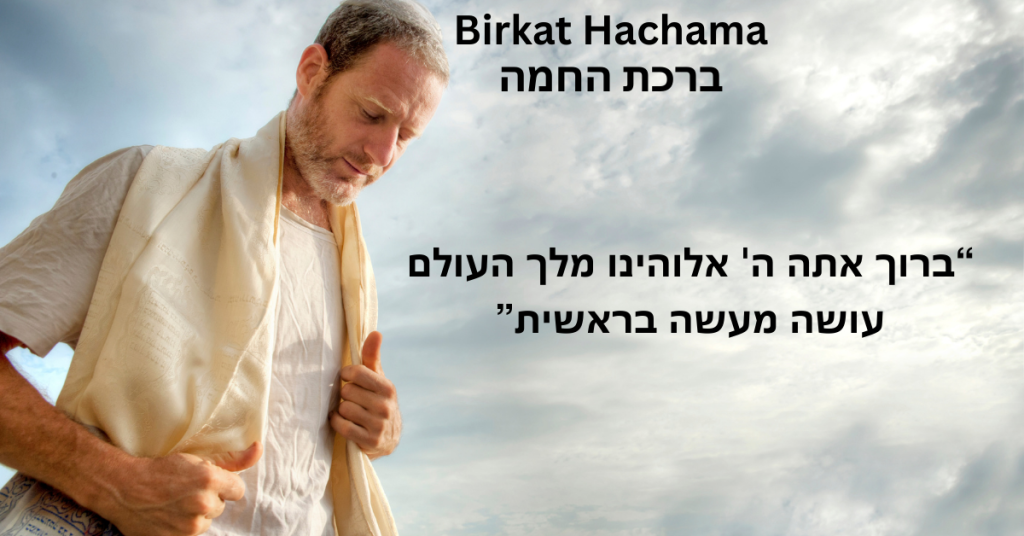Birkat Hachama is a rare Jewish blessing that is recited once every 28 years to thank God for creating the sun.

The Blessing and Its Significance
Birkat Hachama, which means “Blessing of the Sun” in Hebrew, is recited when the sun returns to the position it occupied at the time of Creation according to Jewish tradition. The core blessing states:
“Blessed are You, Lord our God, King of the universe, who reenacts the works of creation.”
The core blessing in Hebrew is: ברוך אתה ה’ אלוהינו מלך העולם עושה מעשה בראשית
Transliterated, this reads as: Baruch atah Adonai Eloheinu melech ha’olam oseh ma’aseh bereshit
This blessing expresses gratitude for the sun’s life-sustaining power and recognizes God’s ongoing role in maintaining the natural order.
What is the historical background behind the creation of Birkat Hachama
The primary source for Birkat Hachama comes from the Talmud, specifically Tractate Berachot 59b, which states: “One who sees the sun at its turning point should say, ‘Blessed is He who reenacts the works of Creation.’ And when is this? Abaye said: every 28 years.” This Talmudic passage establishes the basic concept and timing of the blessing. The practice of reciting Birkat Hachama likely developed in the early Talmudic period (around 200-500 CE).
Timing and Frequency
The blessing is recited every 28 years because:
- The solar year is approximately 365.25 days long.
- This means each year the sun returns to its starting point 1.25 days later in the week.
- It takes 28 years for the sun to realign with its original position on the same day of the week.
Recent and upcoming dates for Birkat Hachama include:
- April 8, 2009
- April 8, 2037
- April 8, 2065
The Ceremony
Ideally, Birkat Hachama is recited:
- Outdoors after morning prayers.
- In a large gathering of men, women, and children.
- As early as possible after sunrise, but before midday.
The full service typically includes:
- Recitation of several Psalms.
- The core blessing.
- Additional prayers and passages from Jewish texts.

